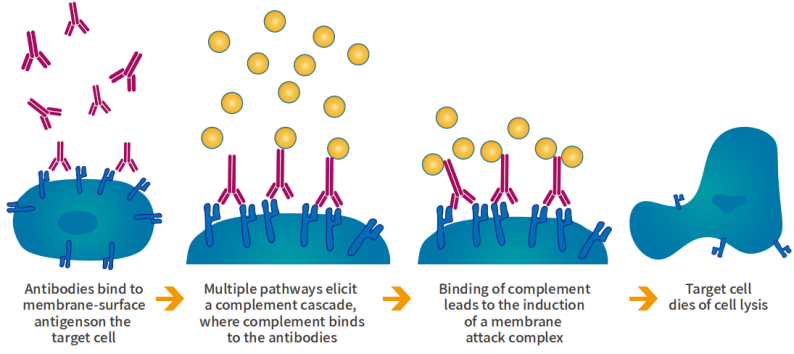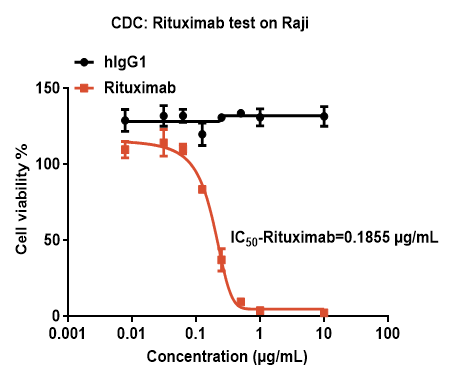Complement-dependent cytotoxicity (CDC) refers to a cell lysis effect that depends on complement proteins. It occurs when specific antibodies bind to the surface of target cells through complement binding factors, activating the classical complement pathway. This activation leads to the formation of a lytic complex and the subsequent killing of the target cells. 'Supplementary proteins' refer to a group of non-heat-resistant proteins found in the blood plasma and other body fluids of humans and certain spinal animals. Upon activation, these proteins exhibit enzymatic activity and include approximately 30 soluble proteins and membrane-associated proteins. The function of CDC complement components is initiated by the first binding of antibodies with C1q. Subsequently, C2-C9 are activated to form an attack complex that exerts destructive effects on target cells. Many anti-cancer antibodies can trigger CDC effects, such as anti-CD20, CD52, and CEA antibodies.

Case:Rituximab-induced CDC effect detection.
Fig. Rituximab induction of a dependant cell virus effect (CDC)
GemPharmatech Advantages
Extensive library of target cells (300+ cancer cell lines and humanized cell lines) and qualified BSL-2 level laboratories.
Providing free comparator antibody therapy for common viral infections.
Using complement molecules as effector molecules results in greater stability.
Extensive project experience.
Meeting the regulatory requirements for new drug application submissions.
Strict laboratory data storage standards ensure experiment traceability.


